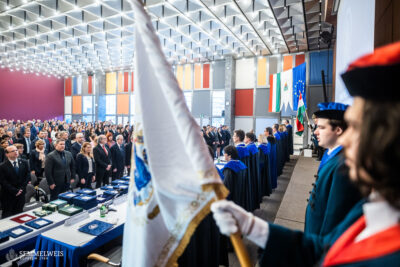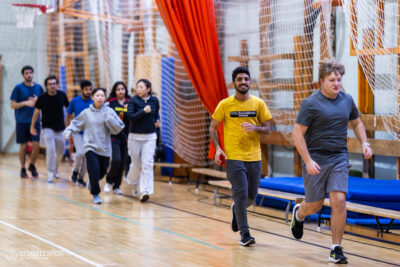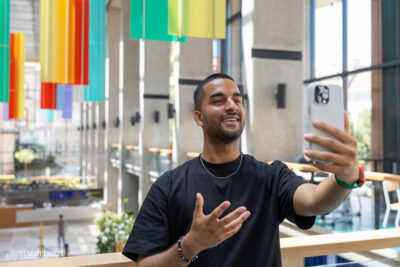232 abstracts in the form of oral and poster lectures were presented in 9 thematic groups by doctoral students from medical, pharmaceutical and health sciences PhD programmes of four Hungarian universities. The event was opened by Dr. Béla Merkely, Rector of Semmelweis University and Dr. Zoltán Benyó, President of the Doctoral Council. In addition to the lectures, available support and fellowship programmes, as well as the operation of the National Association of Doctoral Students were presented.
The National PhD Conference in Medicine, Pharmacy and Health Sciences was held for the first time at Semmelweis University on 31st August and 1st September. Doctoral students from four Hungarian universities presented their research results. The aim of the conference was to help the professional development of doctoral students and the establishment of new research collaborations.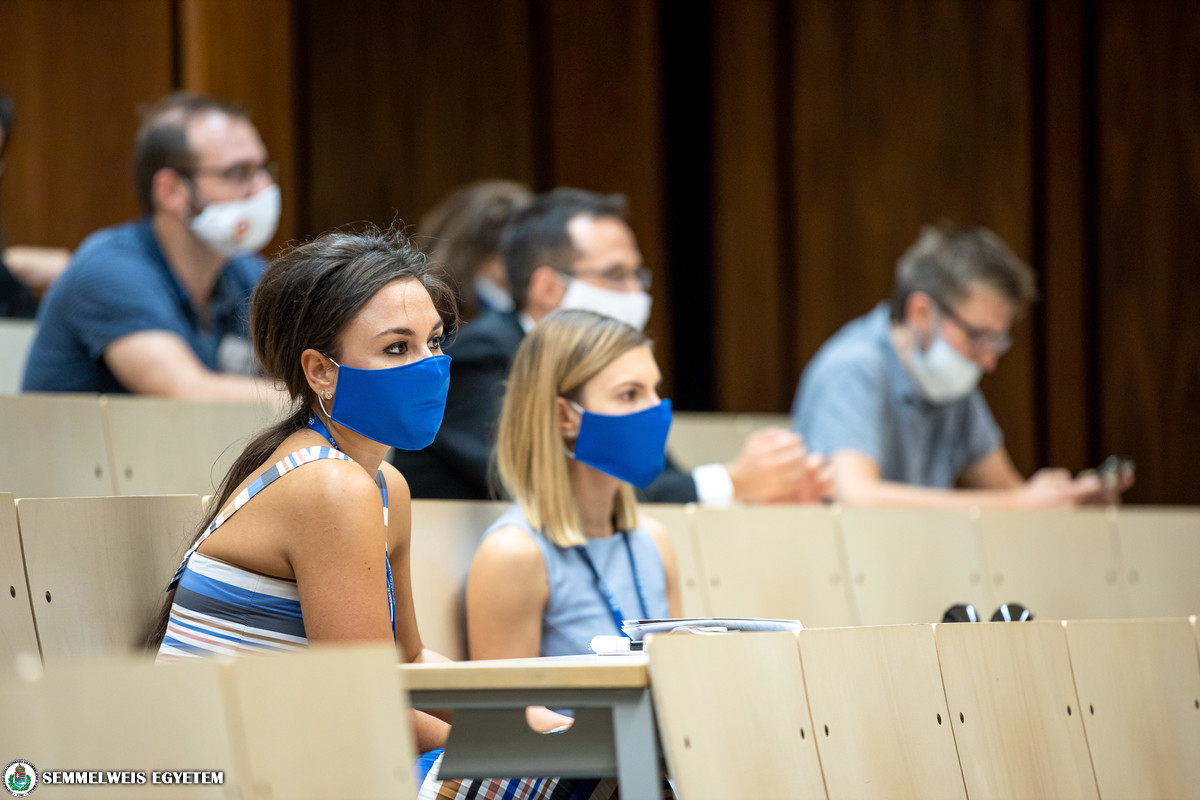
“A record number of students have been admitted to the doctoral programmes in medicine and health sciences this academic year. The extension of PhD training next year will require a new framework and new opportunities and this unconventional conference is one of the steps contributing to its realisation.”, said Dr. Béla Merkely in his opening speech, which was also broadcast online, via Zoom.
Doctoral training is the highest level of higher education, where students investigate questions of basic research, are engaged in clinical trials and many are involved in research with direct economic application. For such research a new scholarship programme, the Cooperative Doctoral Training has been established.
 “Medical and biological research has never been as appreciated by the public as today, when millions of people follow the results of scientific efforts related to the coronavirus in the media. At the same time, it has also become clear that cross-border cooperation of several researchers may even be needed to reach scientific results, such as the development of a vaccine or a drug. Some of the conditions of such collaborations are to be able to understand each other’s work, to be able to present our own results in a clear way, to be able to have constructive conversations and to get to know each other as much as possible. Although, the current circumstances make the latter more difficult, I hope that relations can be made over the Internet as well.”, said Dr. Béla Merkely.
“Medical and biological research has never been as appreciated by the public as today, when millions of people follow the results of scientific efforts related to the coronavirus in the media. At the same time, it has also become clear that cross-border cooperation of several researchers may even be needed to reach scientific results, such as the development of a vaccine or a drug. Some of the conditions of such collaborations are to be able to understand each other’s work, to be able to present our own results in a clear way, to be able to have constructive conversations and to get to know each other as much as possible. Although, the current circumstances make the latter more difficult, I hope that relations can be made over the Internet as well.”, said Dr. Béla Merkely.
The rector was pleased that despite the special circumstances, Semmelweis University hosted the conferenece, which was also one of the featured events of the University’s 250th anniversary year. He also expressed his faith in doctoral students to be able to discuss the latest scientific results in spite of the epidemiological situation.
In his first lecture Dr. István Szabó, Vice-President for Scientific and International Affairs of the National Research, Development and Innovation Office (NKFIH) presented the opportunities available to doctoral students. He introduced the renewal of the doctoral training structure in 2016, as well as grants PhD students can apply for.
“It is of high priority for the government to offer as many scholarships to doctoral students as possible, because research and innovation have great potential in Hungary. That is why recruitment is important.”, said Dr. István Szabó.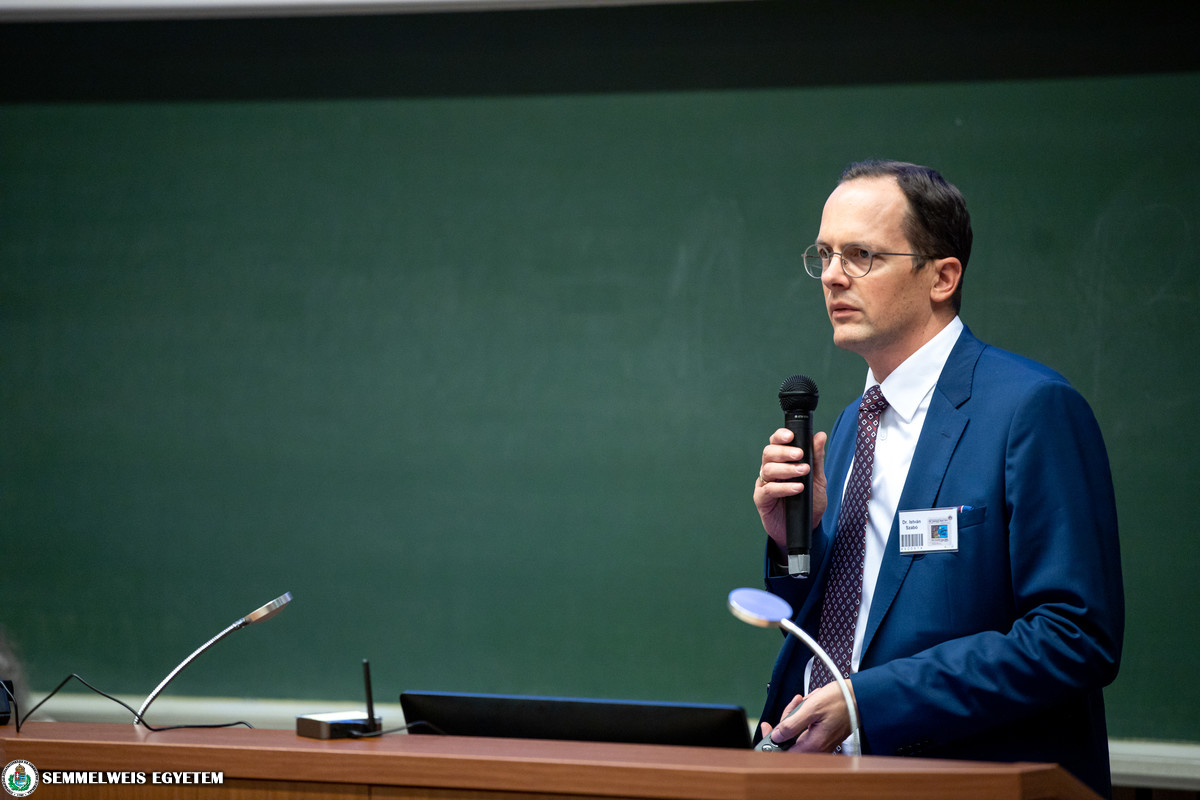
He gave an overview of the newly introduced Cooperative Doctoral Training, which aims at strengthening cooperation between various sectors, the Hungarian government, the doctoral schools of the Hungarian universities, companies and research institutions, as well as doctoral students themselves to reinforce research and innovation. Subsequently, Dr. István Szabó presented the various support programmes available for doctoral students.
In his lecture Dr. Zoltán Benyó, President of the Doctoral Council presented doctoral training at Semmelweis University. The university offers PhD programmes in five disciplines (theoretical and clinical medicine, pharmaceutical sciences, health sciences, biological sciences) and in the field of social sciences there are programmes in sociology accredited at the School of PhD Studies. The training is divided into eight doctoral schools.
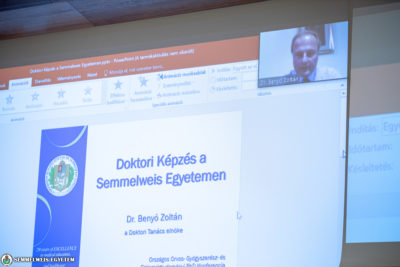 “This year, nearly 600 students have enrolled and I believe that we will exceed this number the next semester.”, said Dr. Zoltán Benyó.
“This year, nearly 600 students have enrolled and I believe that we will exceed this number the next semester.”, said Dr. Zoltán Benyó.
He also introduced the changes of the recent years in the doctoral training. In 2016 a new training system made up of 2+2 years was introduced and the sum of the available scholarship was also raised. In 2019 the number of students with scholarship increased by one and a half times. In 2020 the Doctoral School of Health Sciences was established at Semmelweis University. A grant introduced in 2017 also boosted scientific activity at the university: 20 new research topics and 27 new PhD courses were launched, which led to the organisation of this year’s conference and three previous PhD summer schools. In addition, travel and publication opportunities, as well as fellowship programmes have also been expanded.
Dr. Dániel Imre Szőke, representative of the National Association of Doctoral Students introduced the organisation, their activities and the different ways in which they help doctoral students.
The invited speakers of the event were Dr. Gusztáv Bélteleki, from Cambridge University Hospitals NHS Foundation Trust, Dr. Balázs Rózsa from the Institute of Experimental Medicine in Budapest, Dr. Anna Sebestén, senior research fellow of Semmelweis University’s 1st Department of Pathology and Experimental Cancer Research and Dr. Kálmán Tory, habilitated associate professor of Semmelweis University’s 1st Department of Paediatrics and head of the Nephrogenetic Research Group.
Over the two days a total of 232 abstracts were presented in 9 thematic groups in the form of lectures and poster presentations. The best presentations were awarded at the end of each session and the certificates were handed over by Dr. József Tímár, previous President of the Doctoral Council.
Ádám Szabó
Photo: Attila Kovács – Semmelweis University
Translation: Ágnes Raubinek
